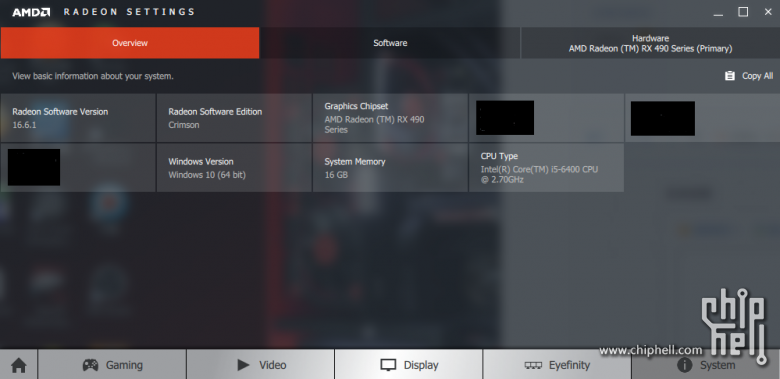This probably goes some way towards explaining the really poor overclocking results by some, potentially more variability in boost clock attainability between cards than we are used to:
I wonder how this card would have performed with more ROPs, or if the bottleneck is more complicated than that. It seems to be do relatively better at 1080P (a cynic might see that at odds with its VR-heavy promotion).
It is disappointing to see power consumption not improve as much as I was expecting, especially considering AMD appears to have made considerable architectural changes aimed at power-efficiency this time (unlike previous GCN versions).
Using AMD's new overclocking tool, we raised the power threshold to 150 per cent, but only achieved a stable, reliable core clock increase of four per cent, taking us up to 1315MHz.
...
The core clock increase of just four per cent is interesting bearing in mind the larger increases overall. The fact is that with our review card at least, our RX 480 sample doesn't always reach its max 1266MHz during gaming, often levelling out at 1190-1230MHz. The overclock seems to overcome that limitation and then gives you the additional OC on top of the max 1266MHz stock boost clock.
I wonder how this card would have performed with more ROPs, or if the bottleneck is more complicated than that. It seems to be do relatively better at 1080P (a cynic might see that at odds with its VR-heavy promotion).
It is disappointing to see power consumption not improve as much as I was expecting, especially considering AMD appears to have made considerable architectural changes aimed at power-efficiency this time (unlike previous GCN versions).






